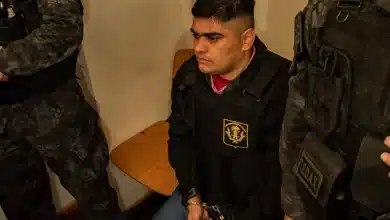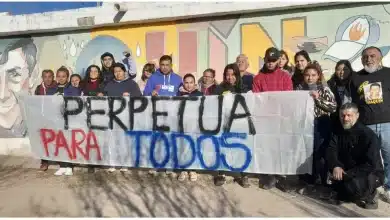Cuba and terrorism, by Luis Alberto Rodriguez Angeles
The inclusion of Cuba in the infamous list of countries "sponsors of terrorism" is nothing more than a ruse that, year after year, the White House concocts as a pretext to justify the commercial and economic blockade
Before the U.S. Secretary of State, Antony Blinken, the Colombian President, Gustavo Petro, pronounced an uncomfortable truth about the inclusion of Cuba in the list -drafted by the White House- of countries “sponsors of terrorism”. He said: “What happened with Cuba is an injustice. That is called injustice, therefore, in my opinion, it does not depend on us, it must be corrected”.
Why was Gustavo Petro interested in establishing such truth before the person in charge of Washington’s foreign policy? Because both he and the people of Colombia have ample reasons to affirm that Cuba has been a crucial protagonist in the process towards the end of the armed conflict in that Andean country and supportive in the fight against internal terrorism.
Since before the beginning of the peace talks between the FARC-EP guerrillas and the Colombian government, the Republic of Cuba proposed itself as a guarantor of the negotiations together with the government of Norway and the United Nations. Thus, Havana hosted the meetings and the subsequent signing of the pacification agreement, in November 2016, between then President Juan Manuel Santos and the chief negotiator of the guerrilla forces, Rodrigo Londoño, with former UN Secretary General Ban Ki-moon as witness.
Likewise, since 2018, Cuba is one of the guarantor countries of the peace dialogues between the Colombian government and the other guerrilla in that country, the National Liberation Army, having Havana, also, as headquarters of the negotiations. Norway, Chile, Venezuela and Ecuador are also participating.
In this regard, Cuban President Miguel Díaz-Canel Bermúdez ratified his country’s support to the Colombian dialogues.
“Cuba’s position in relation to the Colombian internal armed conflict is principled and widely recognized. Our country has supported the initiatives that have been presented for a negotiated political solution and will continue to do so,” he said, in the presence of the Colombian Foreign Minister, Alvaro Leyva; the representative of the UN Secretary General in Colombia, Carlos Ruiz Massieu; Jon Otto Brodholt, representative of Norway; Iván Danilo Rueda, High Commissioner for Peace and other representatives.
For his part, before the press, Alvaro Leyva ratified the Colombian government’s rejection of the classification of Cuba as a “sponsor of terrorism”. He said that with this classification “they have tried to ignore its commitment to peace in Colombia and the world”.
The attempt of pacification with the ELN was resumed after the ascension of Gustavo Petro to the Nariño Palace, after the former president, Iván Duque, unilaterally broke off the dialogues in January 2019. But, the way in which he broke them and his accusations, premeditatedly contributed to the ratification of Cuba in the arbitrary and unilateral list of Blinken of January 12, 2021 on the countries “sponsors of terrorism”, since he pointed out Havana of covering up for the guerrilla, whose delegation is on the island awaiting the negotiations.
Why did the defenestrated Duque make such accusations? These occurred after the ELN attack on the headquarters of the General Police School in the department of Santander, which occurred on January 14, 2019. Then, Iván Duque broke off the peace talks taking place in Havana and demanded the Cuban government to extradite the “terrorists”. However, the protocols agreed by the parties, based on international law, on the solution of internal armed conflicts, contradicted the tantrum of the then Colombian president who, in the face of the refusal, accused Cuba of “harboring terrorists”.
For Iván Duque (and for the White House) the declarations of the Cuban Foreign Minister, Bruno Rodríguez Parrilla, about the attack did not count. On his behalf, the Cuban government condemned “the acts of terrorism”.
It said that Cuba is “against terrorism, against war and in defense of peace”, since, “having been a victim of State terrorism for several decades, it condemns all manifestations of this type regardless of their motivations”. It also added that it will not allow its territory to be used for “the organization of terrorist acts against any State”.
Similarly, the Cuban state issued a communiqué stating “its condolences to the government, the people of Colombia and in particular to the families of the victims of the attack that occurred today in Bogota and Cuba’s firm rejection and condemnation of all terrorist acts, methods and practices in all their forms and manifestations, whatever their motivations”.
The Duque administration issued judicial orders against ELN members and, during the remaining time of his administration, demanded from Cuba the extradition of the delegation that was in Havana. But the island not only refused, in accordance with the agreed protocols, but its position was supported by the Kingdom of Norway, whose representation pointed out that “as a facilitator and consistent guarantor, Norway must comply with its commitments”.
The U.S. government took note of the demands of its Colombian ally. So, the former “peace” delegate of Bogota, Miguel Ceballos, celebrated when Donald Trump’s administration put Cuba on its 2020 list as a country that supposedly does not cooperate in the fight against terrorism, a note to which was added its “support” to the “Maduro regime”. The presidency of Iván Duque took this as an “endorsement” from Washington towards his demands and his tired crusade against “castrochavismo”.
But Duque did not stop there. After, on February 9, 2021, the Cuban ambassador in Colombia, José Luis Ponce, sent a memorandum to the House of Nariño warning about another possible ELN attack in Bogotá, the government of Iván Duque issued, two days later, a note communicating to Cuba “the request of the Colombian State for precise information on possible facts, data or conditions of time, mode or place that the Cuban Government could know about the alert that they have transmitted in relation to a possible terrorist attack by the ELN in Bogotá”.
The tone and denotation of the text attempted to make Cuba an accomplice of the ELN’s actions. Thus, the then Colombian Foreign Minister, Claudia Blum, assured without hesitation that the guerrilla command in Havana “are responsible for the execution of directives issued by the ELN national leadership”, to which the group clarified “that the information received by the Cuban embassy in Bogota is not part of the ELN’s military plans”.
It can be seen, then, the intention of the government of Ivan Duque to hinder the peace talks with the ELN and, incidentally, to join its rabid opposition to Cuban socialism.
Is this a coincidence? Not at all. According to the revelations of Raya magazine, the intelligence services of Colombia and the United States hatched plans to spy on the Cuban diplomatic mission in the Andean country and thus contribute to the dirty political and media war against the island. So much so that they went to the extreme of planting evidence in the computer of an ELN commander to pass off Cuban Embassy officials as agitators of the protests that shook the country in April 2021. Of course, that set-up could not hold up.
But the inclusion of Cuba in the infamous list of countries “sponsors of terrorism” is nothing more than a ruse that, year after year, the White House concocts to lengthen a pretext to justify the commercial and economic blockade it has imposed against the island for more than sixty years. A blockade to which are added the 243 measures, referring to the Torricelli Act and the Helms-Borton Act, which Trump applied and which have not been eliminated by Biden.
And, just as Trump and the presidents before him did, Joe Biden needs to include Cuba in this shameful list in order to please the vote of the Cuban-American mafia implanted in the crucial state of Florida; more so now that there will be legislative elections at the end of the year and the Democratic Party is about to lose positions to the Republicans.
The purpose of the Blockade is explained in what was said on April 6, 1960, by Lester D. Mallory, Assistant Secretary for Inter-American Affairs of the United States government, who said that this measure intends to “deprive the country of material and financial resources to generate and achieve surrender through hunger, suffering and desperation”. In short, to continue the war against the Cuban Revolution.











